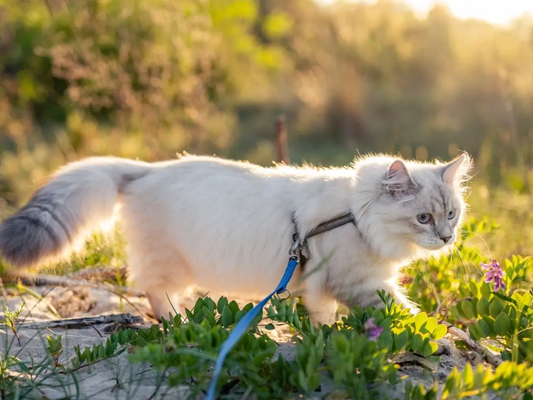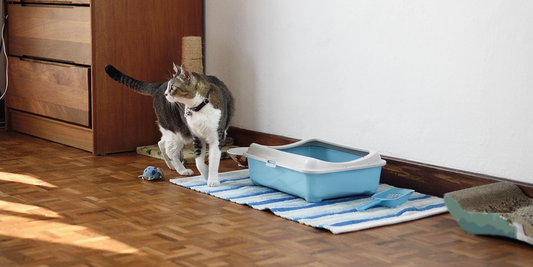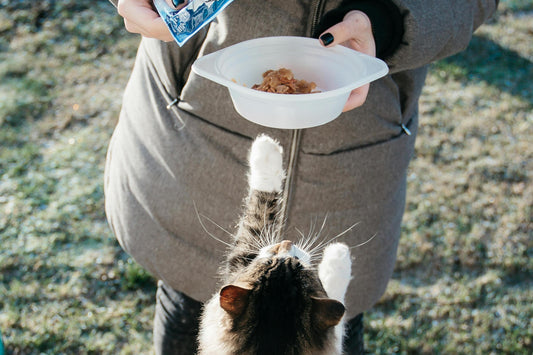Introduction:
Understanding the peculiar behaviors of our feline companions can sometimes feel like solving a mystery. One such behavior that often perplexes cat owners is the tendency of cats to kick litter everywhere after using their litter box. In this comprehensive guide, we delve into the reasons behind this behavior, offer insights into cat psychology, and provide practical solutions to minimize litter scatter in your home.
Exploring the Curiosity: Why Do Cats Kick Litter Everywhere?
The Instinctual Urge to Cover:
Cats, by nature, are meticulous creatures with a strong instinct to cover their waste. This behavior stems from their wild ancestors, who needed to hide their scent from potential predators. Even in domestic settings, this instinct remains strong, compelling cats to kick and bury their waste to maintain their perceived territory and reduce the risk of detection.
Sensory Sensitivity and Texture Preference:
Another factor contributing to litter kicking behavior is a cat's sensitivity to the texture of the litter. Some cats may find certain types of litter uncomfortable or unpleasant on their paws, prompting them to kick excessively in an attempt to alleviate discomfort. Experimenting with different litter textures can help identify the most suitable option for your feline friend.
Marking Territory and Communication:
Cats are territorial animals, and the act of kicking litter can also serve as a form of communication. By scattering litter, cats leave behind visual and olfactory cues that mark their territory and assert their presence. This behavior may intensify in multi-cat households where cats compete for dominance or feel the need to reaffirm their territory boundaries.
Stress and Anxiety Triggers:
Stress and anxiety can manifest in various ways in cats, including changes in litter box behavior. Cats may kick litter excessively as a coping mechanism in response to environmental stressors such as loud noises, changes in routine, or the presence of unfamiliar animals or people in the household. Addressing the underlying causes of stress is crucial in managing litter box issues effectively.
Medical Considerations:
In some cases, excessive litter kicking may indicate an underlying medical issue such as urinary tract infections, digestive problems, or arthritis. Cats experiencing discomfort or pain may exhibit changes in litter box behavior as a way of expressing distress. If litter kicking is accompanied by other concerning symptoms, consulting a veterinarian is advisable to rule out potential health issues.
Environmental Enrichment and Behavioral Modification:
To address litter kicking behavior, enriching the cat's environment with alternative outlets for natural behaviors is essential. Providing scratching posts, interactive toys, and vertical spaces for climbing can redirect energy away from litter kicking. Additionally, behavioral modification techniques such as positive reinforcement training can encourage desired behaviors and discourage litter scattering.
FAQ
What are some tips for minimizing litter scatter in the home?
To minimize litter scatter, consider using a litter box with high sides or a covered design to contain the mess. Placing a litter mat outside the box can also help trap stray litter particles. Regularly scooping the litter box and maintaining cleanliness is crucial in preventing buildup and reducing odor.
Should I punish my cat for kicking litter everywhere?
Punishment is not recommended as it can exacerbate stress and lead to further behavioral problems. Instead, focus on positive reinforcement techniques such as rewarding desired behaviors with treats or praise. Consistency, patience, and understanding are key to addressing litter box issues effectively.
When should I seek veterinary advice for litter box problems?
If your cat's litter box behavior suddenly changes or is accompanied by other concerning symptoms such as frequent urination, blood in the urine, or signs of distress, it's essential to consult a veterinarian promptly. Medical conditions can contribute to litter box problems, and early intervention is crucial for proper diagnosis and treatment.
Can changing the type of litter help reduce litter kicking behavior?
Yes, experimenting with different types of litter can sometimes alleviate litter kicking behavior, especially if your cat seems uncomfortable with the current litter texture. Opt for unscented, clumping litter made from natural materials, and observe your cat's response to determine the most suitable option.
Are there any natural deterrents to discourage litter kicking?
Some cat owners have found success in using natural deterrents such as citrus-scented sprays or aluminum foil placed around the litter box area to discourage litter kicking. However, it's essential to monitor your cat's reaction and ensure that any deterrents used are safe and non-toxic.
What role does litter box placement play in minimizing litter scatter?
Proper litter box placement is crucial in promoting regular use and minimizing litter scatter. Place the litter box in a quiet, accessible location away from high-traffic areas and feeding areas. Cats prefer privacy when using the litter box, so avoid placing it in noisy or confined spaces.
Conclusion:
Understanding why cats kick litter everywhere is the first step in addressing this common feline behavior. By considering factors such as instinctual urges, sensory preferences, and environmental stressors, cat owners can implement practical strategies to minimize litter scatter and promote a harmonious relationship between their feline companions and their living space.








